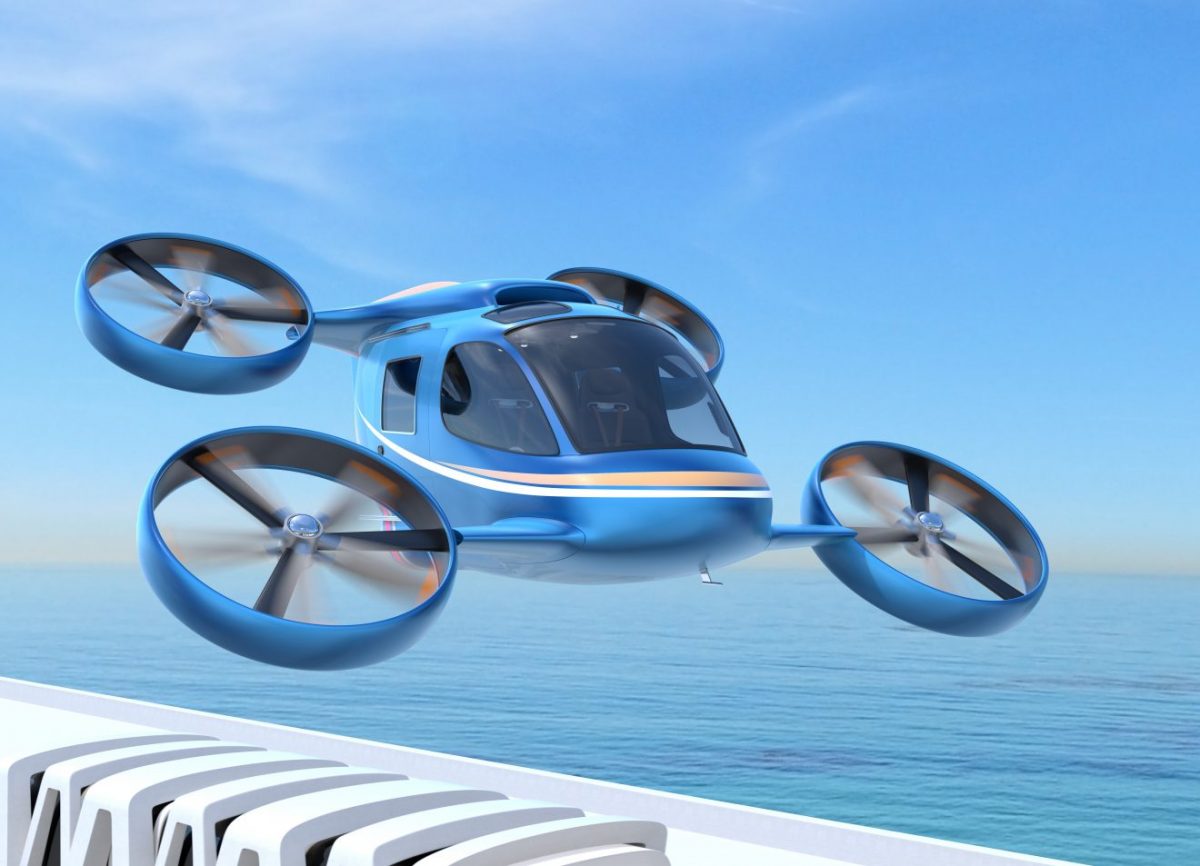Air Taxis? Vertiports? New Course at Florida Tech Explores Urban Air Mobility
Air Taxis, Delivery in Not-Too-Distant Future
MELBOURNE, FLA. — In the not-too-distant future, our skies may be filled not just with jumbo jets rumbling overhead at 35,000 feet, but smaller, unmanned and autonomous aircraft buzzing about, depositing travelers and goods at destinations and homes in a burgeoning ecosystem known as advanced air mobility (AAM).
Urban Air Mobility (UAM), a mission type within AAM, is a safe and efficient system for air passenger and cargo transportation within an urban area using a mix of onboard and ground-piloted aircraft technology. There are about 200 UAM aircraft concepts in development now, with a dozen at the stage where they are seeking FAA certification, some within months.
With upwards of $10 billion invested now, and a market that is attracting investments from major companies including Hyundai, Toyota and Boeing and startups including Joby, Archers and Lilium, UAM is a growing and seemingly inevitable new force in aviation. Morgan Stanley Research forecast the market for UAM could be worth $1.5 trillion by 2040.
Florida Tech, itself borne out of another game-changing aviation evolution – the space race – will help inform and educate the coming generation of UAM participants with a new and unique class this fall: Urban Air Mobility Ecosystem.
Reflecting the wide-ranging impact of UAM, the course – one of just a handful of UAM-related classes offered at U.S. universities – is appropriate for upper level undergraduate and graduate students across various majors, from aviation to engineering to business.
Among its topics will be UAM vehicles, airspace management, environmental considerations, infrastructure requirements, the regulatory environment and a closer look at air taxis and emergency medical services.
Students will work in multidisciplinary teams that include industry stakeholders and hear from guest speakers from organizations including Uber Elevate (which was acquired by Joby Aviation last year) and the FAA. It will be facilitated by Meredith Carroll, professor in aviation human factors at Florida Tech’s College of Aeronautics, along with industry professional Chris Fernando and others.
“We have a unique opportunity to leverage alumni expertise and connections in this area, along with research being conducted at Florida Tech’s Advancing Technology-interaction and Learning in Aviation Systems (ATLAS) Lab, to provide powerful, hands-on learning experiences,” Carroll said. “We are excited to offer knowledge and skills that are in demand for this emerging industry and interaction with industry stakeholders, opening up future career opportunities.”
Unmanned aerial systems (UAS) are already offering delivery services in some markets and have been found useful in some public safety and infrastructure and maintenance applications, noted Fernando, who earned his bachelor’s degree in aviation management at Florida Tech in 2002. The future will likely see a vast expansion of uses and of the aircraft.
“AAM will play a significant role in transforming our cities and transportation systems with a potential to improve accessibility, help save lives, reduce congestion and help the environment,” he said.
A case study in UAM may be unfolding less than an hour’s drive from the Space Coast.
In November, the Munich-based aviation company Lilium, which is developing an all-electric, vertical take-off and landing (eVTOL) jet aircraft, announced it had partnered with Tavistock Development Company and the City of Orlando to develop what it says is the first hub location for a high-speed electric air mobility network in the United States. The Lake Nona Vertiport would launch in 2025 and provide “the opportunity to connect more than 20 million Floridians within a 186-mile radius,” according to Lilium.





